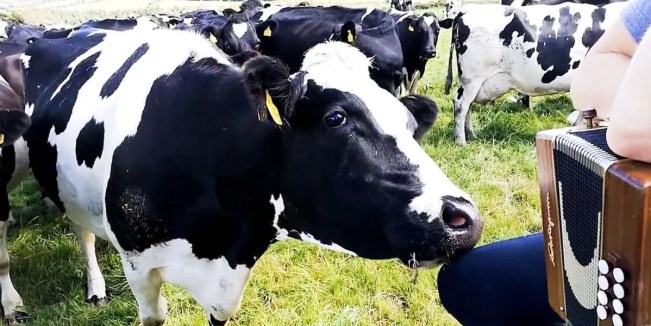Scientific investigation into whether music influences the amount of milk produced by cows has been a fascinating and innovative area of research that bridges the realms of animal behavior, agriculture, and even psychology. This unusual yet intriguing exploration delves into the potential effects of music on dairy cows, offering insights into how environmental factors, such as auditory stimuli, can impact animal productivity and well-being.
The notion of using music to influence milk production in cows might seem unconventional, but it is rooted in the broader understanding of how the environment can affect animal behavior. Just as certain sounds or stimuli can impact human emotions and stress levels, researchers have been curious about whether similar principles apply to livestock, particularly dairy cows.
To scientifically examine the relationship between music and milk production, researchers have conducted carefully designed experiments. These experiments typically involve exposing dairy cows to different genres of music for specific durations and observing their milk production patterns over time. The cows are often divided into control and experimental groups to compare the effects of music exposure.

The results of these experiments have been diverse and sometimes even contradictory. While some studies have reported increases in milk yield in response to certain types of music, other studies have found no significant effect. The variability in results can be attributed to several factors, including the type of music played, the duration of exposure, the individual cow’s temperament, and the overall dairy environment.
One of the leading hypotheses behind the potential influence of music on milk production is its impact on stress levels in cows. Stress can negatively affect milk yield and the overall health of the animals. Music, particularly soothing and calming melodies, is believed to have a stress-reducing effect, contributing to improved cow well-being and potentially higher milk production.
Research suggests that not all music has the same effect on cows. Calming and classical music appear to be more effective in reducing stress and potentially enhancing milk production, while loud or discordant sounds may have the opposite effect. The choice of music genre can influence how cows respond and whether any changes in milk production are observed.
In addition to milk yield, researchers also observe other behavioral changes in cows exposed to music. These changes can include alterations in feeding behavior, vocalizations, and overall activity levels. By studying these behaviors, scientists can gain insights into how cows are responding to the auditory stimuli and how it might be affecting their physiological processes.

While the results of these studies are not always consistent, they hold practical implications for dairy farming practices. Farmers are increasingly experimenting with playing music in barns, milking parlors, and other cow environments to potentially create a more comfortable and stress-free atmosphere. This is especially important as cow well-being directly impacts milk quality and productivity.
The scientific exploration of whether music influences milk production in cows is ongoing. Researchers continue to investigate the underlying mechanisms, refine experimental protocols, and consider how other factors, such as cow genetics and individual responses, might come into play. This unique area of research exemplifies the interdisciplinary nature of scientific inquiry and sheds light on the intricate relationship between animals, their environment, and human interventions.

